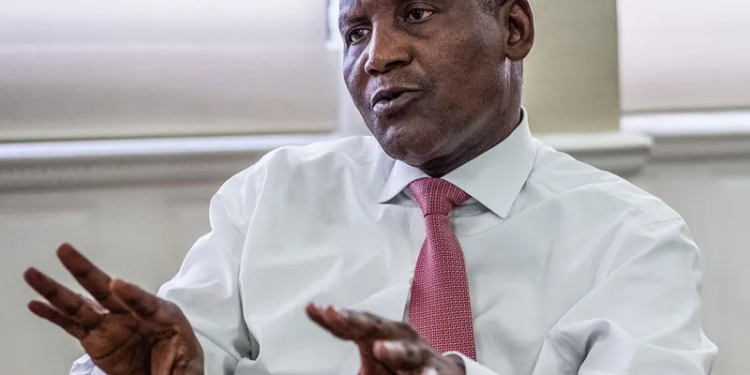The president/chief executive of Dangote Industries Limited, Aliko Dangote, has called for the prioritisation of food security and self-sufficiency across Africa, stressing the continent’s vast agricultural potential.
Speaking over the weekend during a courtesy visit by the AfricaRice Centre—a pan-African Centre of Excellence for rice research, development, and capacity building—at his Lagos office, Dangote highlighted agriculture as a key pillar for sustainable development on the continent.
“Africa is richly endowed with arable land. With the right policies, adequate investment, and the adoption of modern technology, farmers can significantly increase their yields and return on investment,” he said.
He noted that strengthening agriculture could help tackle many of the continent’s socio-economic challenges, given its major source of employment and income.
“With effective policy frameworks and technological advancement, Africa can achieve food security and self-sufficiency. Investing in agriculture will also unlock growth across various sectors of the economy,” Dangote added.
Dangote Rice Limited, a subsidiary of Dangote Industries, recently signed a landmark N1.8 trillion purchase and sale agreement with Niger Foods Security Systems and Logistics Company Limited, owned by the Niger State Government. The agreement will ensure a steady supply of high-quality paddy rice to Dangote Rice to support Nigeria’s broader food security agenda.
Dangote Rice has made substantial investments in rice mills and plantations across Nigeria. Through its outgrower scheme, the company aims to create employment opportunities while promoting food self-sufficiency nationwide.
The director general of AfricaRice, Dr Baboucarr Manneh, commended Dangote’s renewed focus on agricultural investments, describing it as a critical step towards achieving food security on the continent.
He also lauded the recently formalised partnership with Niger State, noting its potential to transform regional food systems.
“Niger State has set an ambitious target of producing five million tonnes of rice over the next five years. To put this into perspective, Africa currently imports around 15 million tonnes of rice annually,” said Dr Manneh. “If realised, this target will have a significant impact on rice self-sufficiency and food security in Africa.”
He emphasised the importance of leveraging public-private partnerships to strengthen the agricultural ecosystem, combining government leadership with private sector expertise and investment.
“This partnership can serve as a blueprint for other states and countries across the continent. With strong support from agricultural science and research, it can dramatically boost productivity and reduce Africa’s reliance on food imports,” he added.
Dr Manneh also called for better management of imports to support local farmers and strengthen domestic economies.
Also speaking during the visit, executive chairman of Niger Foods, Sammy Adigun, reaffirmed the state’s commitment to transforming rice production. He revealed that AfricaRice is set to support Niger State in increasing annual rice paddy production from the current 1.5 million tonnes to 10 million tonnes, through the deployment of climate-smart technologies, mechanisation, innovation, and the integration of both large-scale and smallholder farms.



